Work models have completely transformed businesses that are ready to deal with a more hybrid future. They know that traditional work models are no longer feasible for employees inundated by mandatory lockdowns, quarantines, and other issues restricting them from traveling far from their homes. As a result, this has given rise to technologies that facilitate hybrid work models safely.
Cloud technology is one such resource that has made it possible for organizations to make workflows and corporate assets available to anyone, anywhere, and on any device. This isn't just good for the employees but also makes business sense.
But, greater accessibility also gives rise to security issues that must be dealt with promptly.
Distribute Access Points Cause Network Security Vulnerabilities
During COVID, many security breaches were reported by organizations because of the gaps in cyber security. Employees were found working on unsafe networks, creating security vulnerabilities for the organizations.
Moreover, company assets were always at risk because the organizations weren't equipped for a remote working situation. They were rushed into it because of the sudden onslaught of a raging pandemic and hence had no chance to set up a proper system that could guard their assets even while employees were off-premises.
As a result, many hackers took advantage of these inherent vulnerabilities, and high-profile breaches took place all around the world. A survey of 200 IT companies declared that ever since the start of COVID-19, 20% of companies have been affected by security breaches.
And organizations had to pay an unexpected cost to recover from these security breaches.
As a result, companies are now inundated by expanding data access points, and they've had to focus on:
- A refreshed emphasis on moving their work processes to the cloud, along with decentralization of data and application
- The requirement for employees to get remote access to company networks
So now, organizations prioritize equipping their employees with cloud technologies to protect data against such breaches. In addition, these cloud services make the organization's data available safely to its distributed employees.
Cloud Security Adds Value to Hybrid Work Models
COVID-19 led two years' worth of digital transformation in two months. The abrupt shutdown of workplaces compelled organizations to shift towards the cloud quickly.
A study led by Snow Software in June 2020 discovered that 52% of organizations around the world had become more reliant on cloud-based videoconferencing platforms in the wake of the pandemic. Moreover, 76% of the organizations revealed that they were investing more in cloud infrastructure from Google, Microsoft Azure, and Amazon Web Services.
Gartner predicted an 18.4% growth in the adoption of cloud computing. It's not difficult to understand why that would be the case.
Cloud services allow employees to log in to the company network from anywhere around the world. They can access corporate applications and data, collaborate with colleagues, and host meetings using one platform. Hence, the cloud computing services not only guard the organization data but also increase employee engagement.
Additionally, organizations can rely on cloud hosts without a worry because monitoring the network's security is their full-time job. They are a massive improvement in efficiency considering how ineffective conventional in-house systems were since security was seldom a priority.
The only security concern with cloud technologies is that of an internal breach. These breaches are very unlikely because employees and stakeholders only get access via passwords and a range of other authentication methods. But the safest way to tackle this threat is to store sensitive information in a separate account and restrict access to only those who need this data.
A RapidScale study declared that the security of 94% of businesses improved after switching to the cloud. At the same time, it has made it easier for 91% to get in an alliance with government compliance requirements. The key factor that has led to this reliable security is data encryption transmitted over networks, which is then stored in databases.
Encryption makes it a lot more difficult for hackers to access organizational data since not everyone is authorized to view it. You can also set up various security settings with cloud services to enhance security. Moreover, these services have reduced the disaster recovery tie to four hours or less, as claimed by 20% of cloud users.
Increased Collaboration is Good for Employee Engagement
Collaboration and employee engagement are priorities for businesses that have adapted to hybrid work models. And, cloud services have made collaboration simpler than ever before.
Employees are now more aware of what their team members are working on and the approaching deadlines. Moreover, they can easily access the information they need to move ahead. You can even find some cloud-based services that provide collaborative social spaces. In these workspaces, employees can connect with their co-workers across the organization. This increases employees' engagement and interest.
In Conclusion
Cloud services are now necessary as hybrid work models become an essential part of every organization. They can keep organizational assets secure and provide secure access to employees. Moreover, while it isn't impossible to collaborate and create employee engagement without cloud services, they can make it more efficient and easy.


